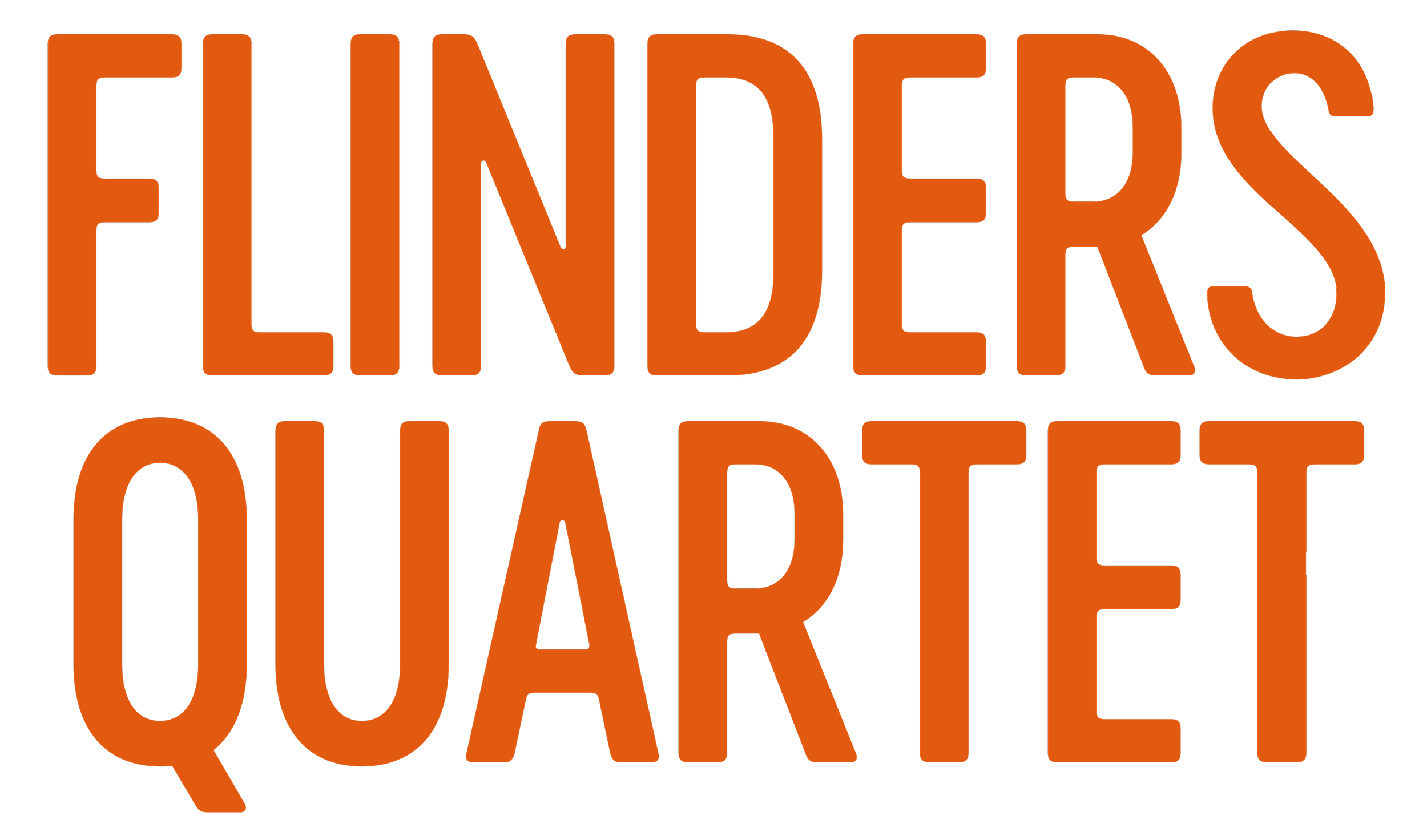FIFTH STRING MEMBERS BLOG: Inside FQ’S Composer Development Program
People often ask if I compose music myself, and I have tried, honestly I have. Not for any length of time, but enough time spent that I have enormous respect for anyone creating and organising sound for others to play. One of the hardest things about being a composer (and there are many) is that your creation may not even be heard, and then we enter the philosophical discussion - if it isn’t heard, does it even exist?
Bearing that in mind, we feel the weight of responsibility on our shoulders when we choose the composers to take part in our emerging Composer Development Program each year. Artists can show their art to friends and loved ones, and writers can show their novels. But what can composers do? Show them a manuscript? This year we had over 50 submissions from emerging Australian composers, some with midi files (electronic renditions of the pieces) and some without. Sometimes we do listen to the midi files, but more often than not, we try to let the music leap from the page and allow ourselves to imagine it in our minds before we make our decisions. Funnily enough, the pieces seem to fall into categories: those that are atonal and experimental; those that follow harmonic progressions more than melodic construction; those focussed primarily on rhythmical interplay; those that seem to be channeling past masters and you can see and hear their influence. (This year we’ve identified Berstein and Berg as composers still inspiring from the grave.)
Clockwise from top-left: 2021 Composer Development Program participants Eugene Ball, Hana Lavers, Ceridwen McCooey, Mark Vendy, Alexander Voltz
For our 2021 program we purposely chose pieces that would show different ways of utilising a string quartet to its advantage. All of the composers are chosen anonymously and pretty much anyone can apply. This year we have three students, one professional musician and teacher, and one composer with a day job. All have great skill and few opportunities to have their music played. The joy on their faces when they hear their piece played by real people for the first time never gets old and is always followed by us asking anxiously, “Is that what you had in mind?”
L-R Erica Kennedy (guest violin), Elizabeth Sellars (guest violin), Helen Ireland (viola), Zoe Knighton (cello)
The thing I love most about the program is when composers push us beyond our perceived limits, proving that sometimes naivety and inexperience is a blessing. “Could that go any faster?” asks one composer. We had already decided in rehearsal that we were at our limit, but our motto is to do whatever the composer asks because after all, we are there to serve their vision. With a deep intake of breath, we say “Yep, let’s give it a go.” We are all thinking, “this is going to be a complete mess but that’s okay, at least the composer will realise the tempo is not feasible.” To everyone’s (but not the composer’s) surprise it is a complete success and we play beyond our capabilities. The composer’s eyes sparkle, “Yes! That’s it!”
There are experiences like this every time in the workshop process - we learn just as much, if not more than the composers.



